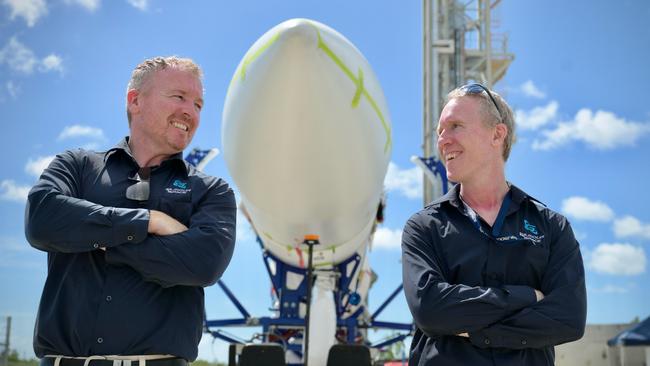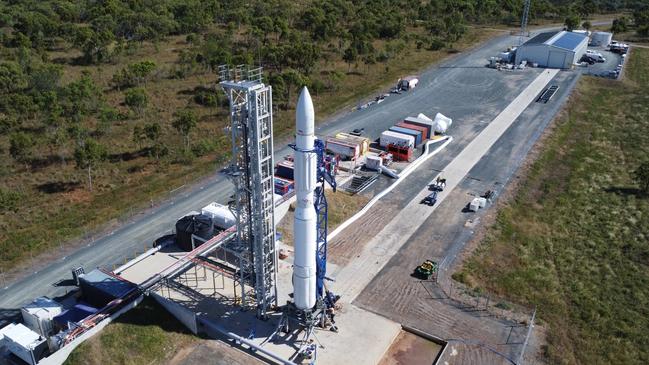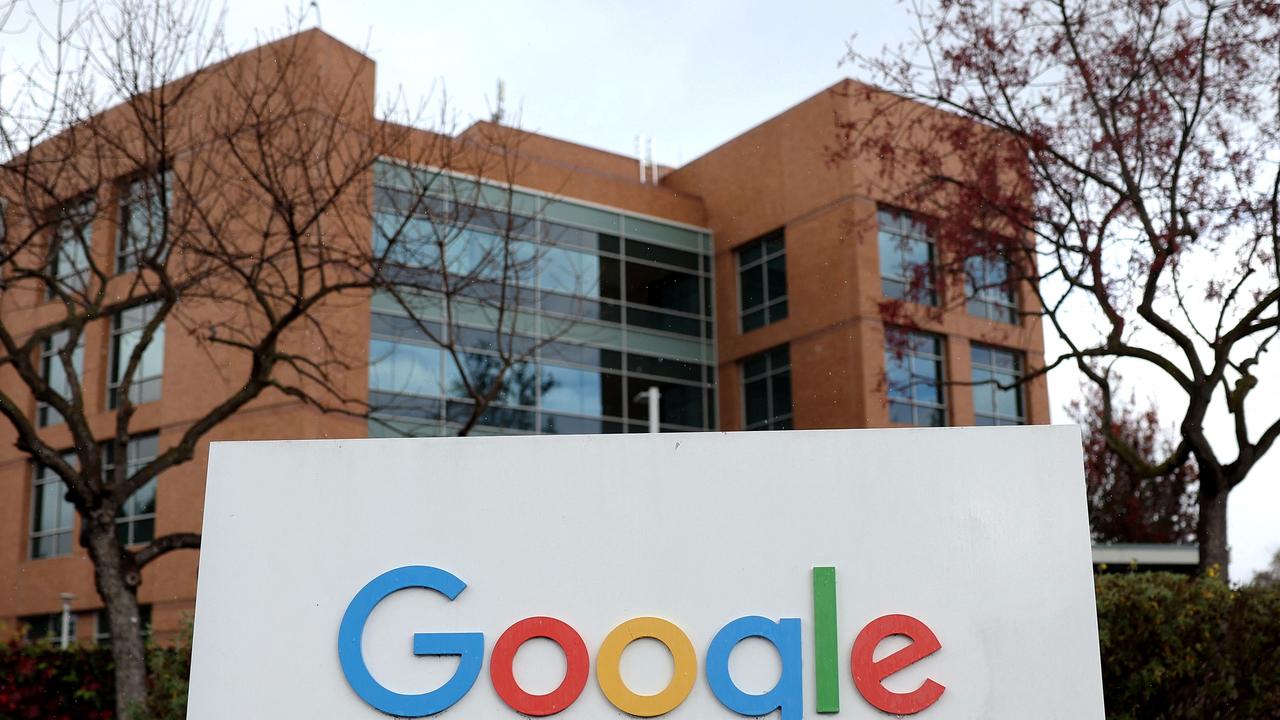VC-backed start-ups aren’t getting rocket fuel from the government, says Gilmour Space founder
Australia’s largest space start-up says a 20,000-page application to launch has delayed it firing its first rocket into orbit by as much as three months.

Australia’s largest space start-up says it would have launched its first rocket into orbit more than three months ago had it not been slowed down by a 20,000-page launch application.
Adam Gilmour, the co-founder of $605m company Gilmour Space, said his top engineers had spent months bogged down in a process that was “more than (regulators) can read”.
“I was talking to my chief engineer two days ago and he thinks we would have launched three months ago if we didn’t have to spend so much time working on the documentation,” Mr Gilmour told The Australian on Thursday.
“It’s more than they can read so I’ve said to the head of the agency, going forwards, with everything I know about the application process, I think it’s reasonable to have all the information in around 400 pages.”
Mr Gilmour had planned to launch Gilmour Space’s first rocket into orbit in April but continuous delays and discussions with the Australian Space Agency delayed that process, with it now looking at a launch in mid-June.
“We’ve got one final test where we basically take the launch vehicle to T-minus five seconds and stop it there to test all fluid systems and electronic systems,” he said. “If that goes well, we’ll be ready to launch within 36-48 hours after that but we won’t because we won’t have the permit in time.”
The delays are due to it being the first time the Australia Space Agency has had to approve such a launch. “Just when you think you’re finished, they ask you some more things and it just keeps going on and on. The frustrating bit for us is we never know when we can close it off or when they will deem us sufficiently safe to launch,” said Mr Gilmour, who was speaking at Blackbird’s Sunrise festival in Sydney.

Gilmour Space has raised a $55m series D round led by QIC. That round involved existing investors Blackbird and Main Sequence, and superannuation funds HostPlus and HESTA also joined the round.
Venture capital firms have proved a saving grace for the company, which believes the Australian Space Agency actively favours university-led projects that have yet to produce a product. “The space industry is successful in Australia because the venture capital has lent in the absence of the government,” Mr Gilmour told The Australian. “There are about four universities who have been given far more money than we have from the agency and their mandate is supposed to be about building the industry.”
Gilmour Space has received $1.5m from the Australian Space Agency.
“They’ve picked the guy that’s on top of the hill and given him nothing … It’s insane. If I had to guess it’s because Blackbird supports us so strongly that they think the Gilmours are good enough. Because they know we’re venture capital-backed, they just give funding to the ones that aren’t,” he said.
Making a comparison to the US space industry, he said: “NASA gives more money to SpaceX than anybody else. That’s the way it should be. You have to support champions.”
Gilmour Space is entering the market for small satellite launches, building a capacity to launch 150kg to 200kg satellites into orbit.
Once the company has launched its first rocket mid-year it will push ahead with plans to raise $100m, with funding to be used to build out the capacity of its rocket to carry two and possibly three satellites into orbit. The kind of customers it is fielding requests from are those using satellites for earth observation, communications systems and synthetic aperture radar, a way of producing images that can “see through” clouds and darkness.






